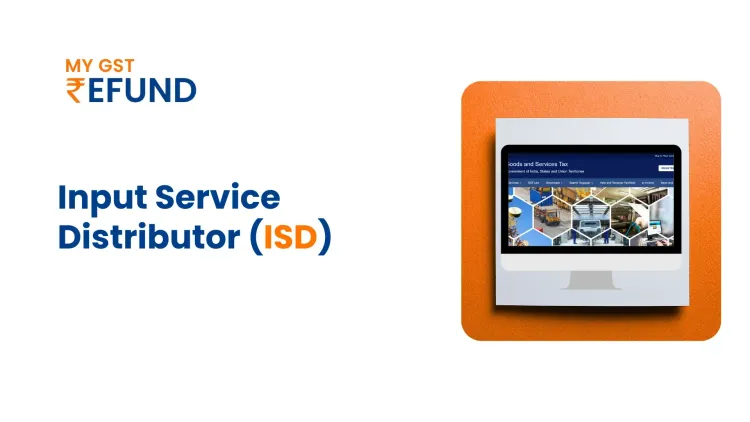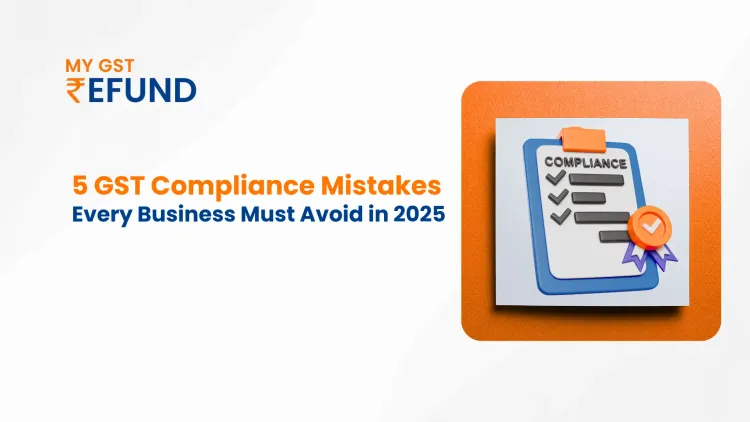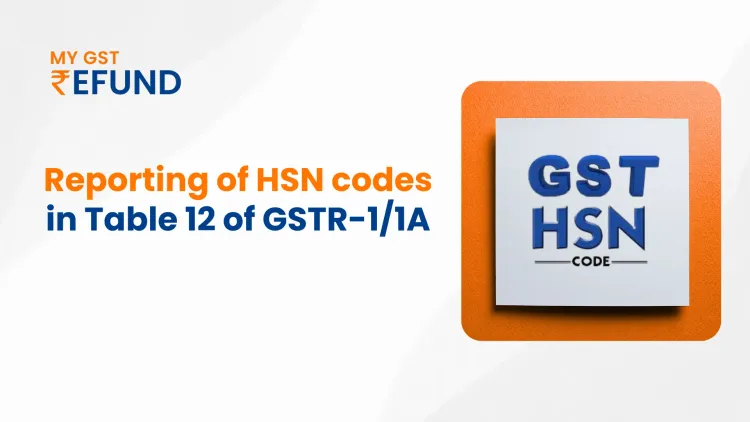Impact of GST On Real Estate Sector
The introduction of GST in India in July 2017 was a significant tax change that merged many different taxes into one. This changed the real estate sector, which is important for the Indian economy, contributing around 5-6% to the country's GDP. The real estate sector in India has four main parts: residential, office, retail, and hospitality. It attracts large investments from both domestic and foreign investors and has connections with over 250 other industries like cement and steel. It also provides jobs for over 50 million people. Before GST, there were many different taxes like excise duty, VAT, service tax, stamp duty, and registration fees imposed by the central and state governments. This created confusion and debates.GST aimed to solve these problems by combining most of these taxes into one, making the system more clear and responsible.
Impact of GST On Real Estate Sector Transactions
The significant taxes applicable to the real estate sector in India post-GST are as follows:
1. GST at a rate of 12% on under-construction residential and commercial properties without input tax credit benefits.
2. Stamp duty continues to be levied by state governments on all property transactions, in addition to GST.
3. No GST is applicable on completed and ready-for-easy properties.
Some of the main implications of GST on real estate transactions in India are:
1. Increased Tax Burden: The GST rate on under-construction properties is 12%, compared to the previous service tax rate of 4.5%, significantly increasing the tax burden on developers.
2. No Input Tax Credits: Real estate developers cannot claim credit for taxes paid during construction, leading to a higher effective tax rate.
3. Increased Costs: The higher tax burden has resulted in a rise in costs for under-construction properties by 7–10%, making purchases more expensive for homebuyers.
4. Dampened Demand: Higher costs have negatively impacted demand, especially in the affordable housing segment, leading to a decline in sales volumes post-GST.
5. Challenges in Joint Development: Tax complexities have made joint development agreements difficult for landowners, impacting potential revenue-sharing arrangements.
6. Compliance Burden: Developers now have to file multiple returns monthly and yearly, adding to the administrative burden and requiring exact record-keeping for input-output taxes.
7. Benefit for Ready Properties: Ready-to-use apartments are exempt from GST upon receiving completion certificates, making them more attractive to buyers.
GST Registration And Compliance For Real Estate Developers
Real estate developers and builders in India must follow Goods and Services Tax (GST) rules if they earn more than Rs 20 lakhs annually (Rs 10 lakhs for certain states). Here's what they need to do to comply:
1. Single Registration: Developers only need one GST registration to do business in all states, instead of separate registrations for each state.
2. Invoicing: They must send GST invoices on time, including details like GSTIN, delivery location, and taxes.
3.GSTR-1 Filing: Every month, they must report all taxable supplies they made using Form GSTR-1 by the 10th of the next month.
4.GSTR-3B Summary Return: By the 20th of the following month, they need to submit a summary return in Form GSTR-3B to claim the input tax credit and settle the net GST liability.
5. Audit Requirements: If their annual turnover is more than Rs 2 crores, they must get their accounts audited by a chartered accountant (CA) and submit a certified reconciliation statement.
6. Composition Scheme: Developers with a turnover of Rs one to five crores can opt for the composition scheme, which offers a lower tax rate but doesn't allow them to claim input tax credits.
7. Project Tracking: They have to track each project separately and report the turnover for each project. Input credit reversals are also specific to each project, making the reporting process more detailed.
Tax Implications For Homebuyers And Property Investors
The introduction of Goods and Services Tax (GST) in the real estate sector has brought about significant changes, impacting the decisions of home buyers in several ways.
1. No GST On Ready Flats: Ready-to-move-in flats do not have GST, making them attractive for buyers seeking immediate ownership. This exemption removes the GST burden on completed projects, encouraging investment in properties that are already built.
2.12% GST On Under Construction: Under-construction projects face a 12% GST, significantly increasing the overall cost of such properties. This higher tax rate makes under-construction homes more expensive for buyers, affecting affordability, especially in affordable housing projects.
3. No Input Tax Credits: Buyers cannot claim tax credits for the taxes paid by the developer, leading to a higher effective property cost as they cannot offset the taxes paid during construction.
4. Lower Registration Charges: Although registration charges have been reduced to a flat 1% for both states, stamp duty still applies. This change in registration charges affects the total transaction cost associated with property purchases.
5. Increased Burden On Luxury Housing: Luxury housing, with a 12% GST on construction cost and stamp duty calculated at the agreement value, faces a higher financial burden. This makes luxury homes more expensive and potentially impacts the demand for such properties.
Impact Of GST On Property Investors In India
- Rental Income From Ready Properties: Rent earned from properties that are already built doesn't have GST, which means investors don't have to pay extra taxes on their rental income. This helps investors as they don't have to bear a heavy tax burden on the money they make from renting out already-constructed homes.
2. Rental Income From Under-construction Properties: However, if investors have properties that are still being built, they have to pay a 12% GST on the rent they earn. This GST on rental income from properties under construction reduces the overall profit for investors.
3. GST Registration Requirements: Property investors must register for GST if their rental income exceeds Rs 20 lakhs. This registration ensures they follow GST rules, and investors must meet this requirement to comply with regulations.
4. GST On Brokerage Or Commissions: When property deals involve paying a broker or agent, an 18% GST is added. This adds to the costs of property transactions, affecting the overall financial matters for investors in the real estate market.
Challenges And Issues In Implementing GST In Real Estate
1. Multiplicity Of Taxes: Some taxes, like stamp duties and municipal taxes, are not included in GST. This makes the tax system more complex, leading to confusion and extra compliance requirements.
2. Blockage Of Working Capital: Developers can't use input tax credits to adjust output taxes, which blocks their working capital. This makes it hard for them to manage money flow and invest in new projects.
3. Ambiguity In Rules: Unclear rules, especially about tax liability for joint development projects and partially completed projects, create uncertainty for developers. It's challenging to decide how to treat taxes without clear guidelines.
4. Compliance Overload: Real estate deals with a lot of compliance work, with multiple returns required every month and year. This increases the operational costs for developers and makes it hard to meet regulatory requirements.
5. Tax Rate Rationalization: Many people think the 12% GST rate is too high, making real estate less affordable. Adjusting tax rates could increase demand and have a positive impact on the real estate market.
6. Various Interpretation Issues: There have been many problems interpreting GST rates for under-construction properties over time. The lack of clear guidelines has confused both developers and customers.
Government Initiatives And Solutions
To tackle the problems faced by the real estate sector, the government formed a ministerial panel to discuss and find solutions. Simplifying the tax laws related to real estate became important to make things clear and ensure everyone followed the rules. A key step to help the sector is to consider lower GST rates. This could encourage people to buy properties, especially since demand is currently low. Ongoing discussions and teamwork among all involved parties are crucial for creating a tax system that's not only good for the real estate business but also easy to understand. This united effort aims to solve problems, boost growth, and make people feel more confident about the real estate market.
Conclusion
Implementing GST in India's real estate sector changed how taxes work by combining multiple indirect taxes into one system. But the high 12% rate without tax credits has made things harder for developers and homebuyers. The increased costs and rules to follow have also damaged the industry. To fix these problems, we need clearer laws and lower tax rates. This can help the real estate sector grow and contribute more to India's economy.
FAQs
Q.1 How does the GST affect real estate property ?
Ans. Under GST, there's a flat tax rate of 12% for homes being built, but completed or ready-to-sell homes don't have GST. This change is expected to make property prices lower for buyers.
Q.2 Does property tax appeal to GST ?
Ans. The property tax, which includes registration and stamp duty fees, stays the same with GST in the real estate. Registration fees are usually 1% of the property's value, and stamp duty is charged at rates between 5 to 10 percent.
Q.3 What is the objective of implementing GST on real property ?
Ans. The main aim of GST in real estate is to let developers get back some of the taxes they paid on things like materials, labor, and services used in construction. This is meant to make construction costs lower for developers when it comes to taxes.
Also Read : E-commerce Under GST: Navigating the Rules, Challenges, and Opportunities
Related Posts








